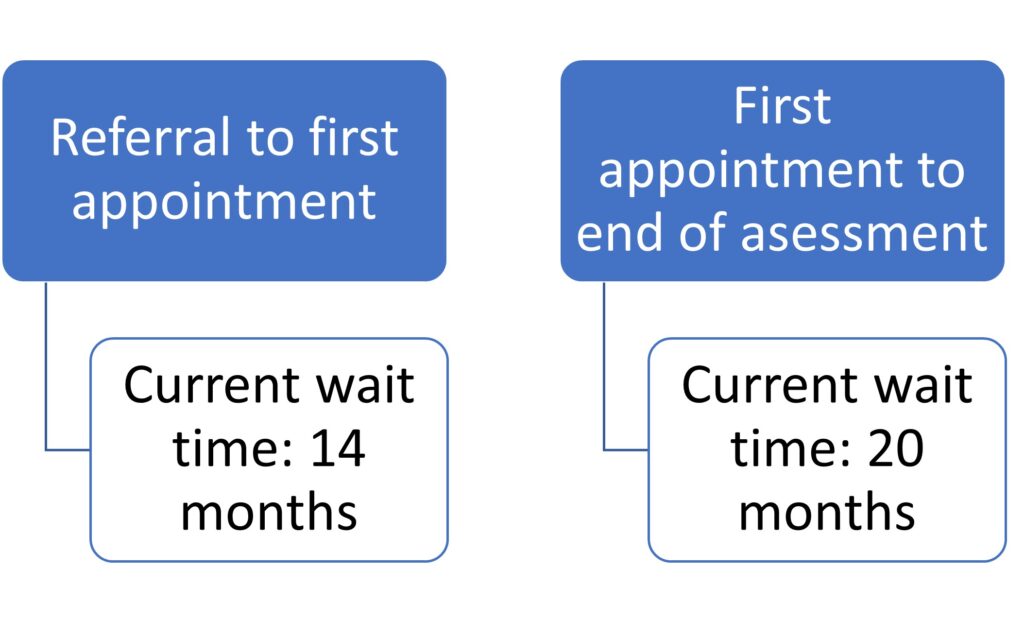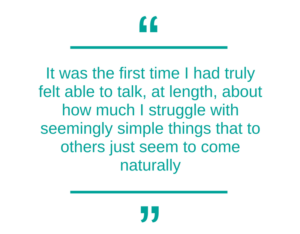Autism Diagnostic Service (LADS)
Waiting time update |
| Waiting list update March 2024
Our service is extremely popular – and we receive referrals both from GPs and directly from members of the public. We are currently resourced to provide 40 autism assessments per month. However, we’ve seen a big surge in demand over the last two years. We think this is because of greater public awareness of autism and also the impact of the Covid pandemic. We now typically receive 85 or more referrals per month. As a result, we have a growing waiting list. If you are referred to us in February 2024, you can expect to wait around 14 months for a first appointment. If you have had an initial assessment appointment, you can expect to wait no more than 20 months for your assessment to be completed. However, many assessments are completed in a much shorter timeframe. The service is currently prioritising reducing the length of time assessments take once the assessment has started. Please note that these are average figures. Your own waiting time may be shorter or longer than this. We are working as hard as we can to meet the increased demand, and we are proud that our service is accessible to all. However, please be aware that you will have to wait for an autism assessment with us. If you are already undergoing an autism assessment and you haven’t heard from the service in some time, please be patient. There is a waiting list for every stage of the assessment process, and we are working through it as fast as we can. Whilst people are waiting for their first appointment, we recommend looking at the information for service users and useful links and resource sections on our website. Thank you for your consideration.
|

The Leeds Autism Diagnostic Service provides autism assessment for people of all intellectual ability, who may have autism and live in Leeds.
The assessment is provided by a team of mental health and learning disability professionals with specialist knowledge of autism.
We accept referrals from healthcare professionals and directly from individuals who need an autism assessment (self-referrals). Our service is for people over the age of 18, of any intellectual ability (IQ), who are registered with a Leeds GP. This includes people who also have a learning disability or other neurodevelopmental condition.
If autism is diagnosed, what next?
If you receive a diagnosis of autism, you will be offered a one-off follow-up appointment where guidance and advice is provided. You can find out more about what to expect on our Information for Service Users page.

